Come check it out . . . samchaltain.substack.com
Author: Sam
This is what learning is really about
Courtesy of Kansas State University Anthropology professor Michael Wesch, in a talk that is beautiful, moving, and deeply insightful.
Spark Series: Jeff Duncan-Andrade (1.26)
What is the purpose of public schools?
For Jeff Duncan-Andrade, a lifelong educator, school founder, and professor of Latina/o Studies and Race and Resistance at San Francisco State University, the answer depends on which sort of society you envision.
But if you take the last 200+ years of American history as our collective answer to that question, the one we have envisioned is, simply put, the one we now have — a social (dis)order marked by radical inequality, mass incarceration, and entrenched social apartheid at every turn.
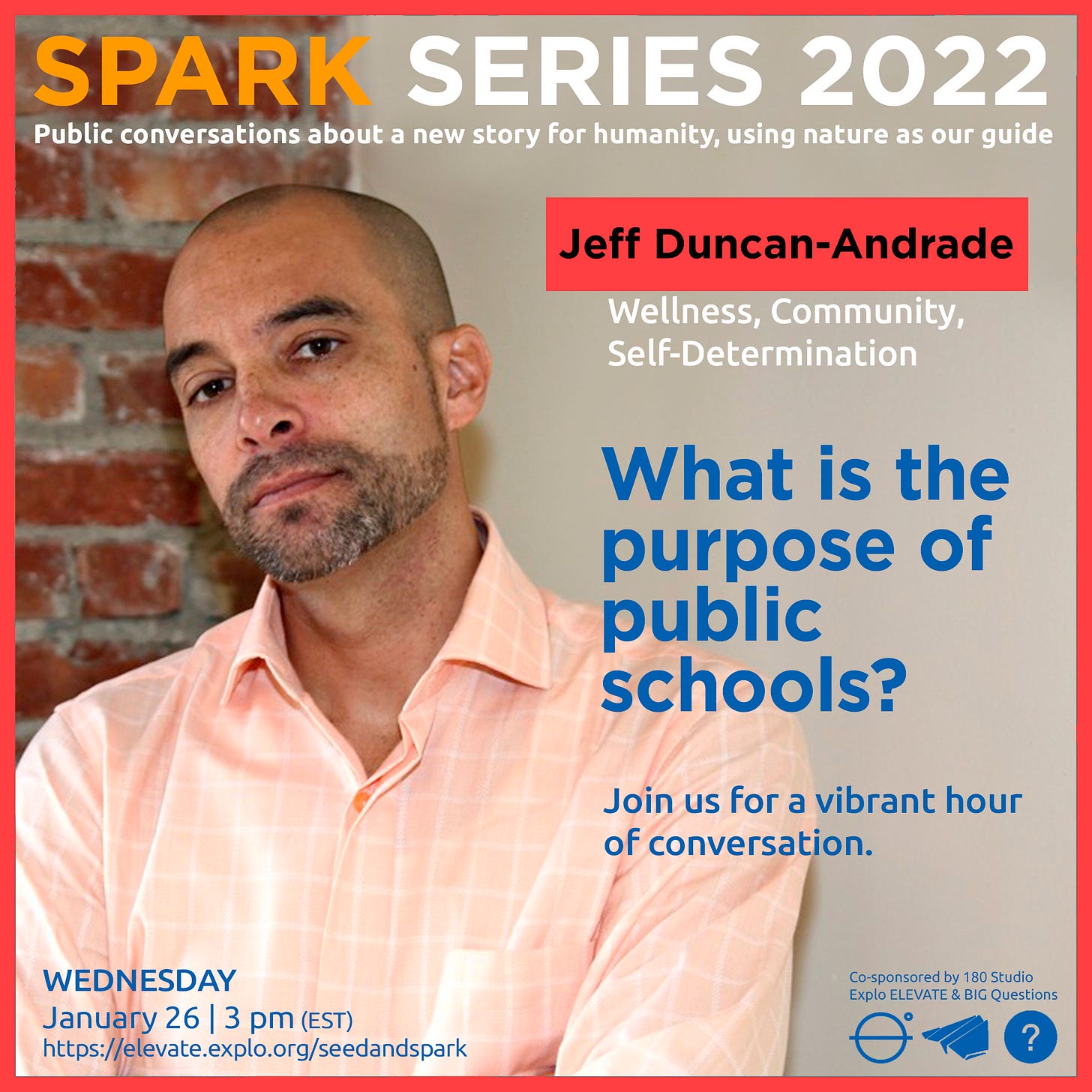
For Andrade, a proper education is one that “teaches kids they can transform things. They not only learn to think for themselves, they learn they can define new limits for themselves.” That sort of education, however, is rarely the one that is available to students of color.
By contrast, in those schools, the emphasis is on “order, control, compliance and accepting your station in life. What’s pounded into these kids is that to do well in school you don’t challenge, you don’t question, you don’t get too excited and demonstrate your passion for learning by jumping out of your seat. If you’re a good student, you contain yourself.”
How, then, can we transform the systems that hold us prisoner?
And what can each of us do to support a system of public schools that are equitable, vibrant, and alive?
Join us for a special Spark Series event with Jeff Duncan-Andrade this week — Wednesday, January 26th, at 3pm EST (note the earlier start time) — and if you want a sneak preview (and a better understanding of the distinction between equality and equity, and why it matters so much), see below.
This is how we #changethestory . . .
Spark Series: Jenny Finn
What does it mean — and require — to be free?
This is the question of American history — and we are, to put it mildly, horrible at answering it.
As The Guardian put it last week, “the problem isn’t that American democracy is about to be overthrown; it’s that America isn’t much of a democracy to begin with.“
For that reason, tonight’s Spark Series event with Jenny Finn is a MUST.
In 2014, in the hills of rural Appalachia, Jenny founded Springhouse School, an intergenerational learning community “with life at its center.”
As she puts it, “we are actively reimagining education and believe learning is a lifelong journey that should be centered around vitality, meaning, and cultivating wholeness to better serve the world’s emerging needs.”
Put another way: Springhouse is a community that understands what it means — and requires — to be free. ??
“If you feel unprepared from the inside out and are wondering what your gift is,” says Jenny, “we have a program that can help you get to know yourself more deeply.”
So join us tonight, January 12th, at 8pm EST via the usual link, so we can craft a better way forward, together.
This is how we #changethestory . . .
My Three Priorities for 2022
OK. It’s a New Year. Now what?
This feels like an especially relevant question when the problems we face – in 2022 and beyond – seem so overwhelming.
Here in America, we’ve entered fascism’s legal phase. Around the world, the climate emergency advances, unabated. And for the third year in a row, the COVID pandemic rages on.
Against such odds, what are we to do?
In my mind, there’s only one way to avoid the WALL-E-y soporific stupor that awaits us:
We must make 2022 the Year of the Network.
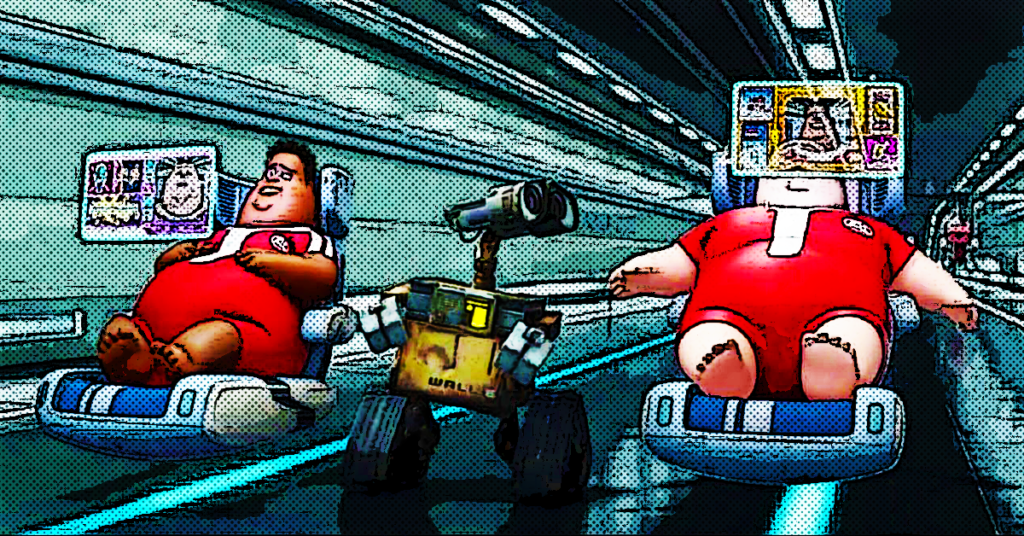
In fact, this shift has been remaking the scientific community for years; scholars in fields ranging from biology to ecology have revised the metaphors they use to describe their work, and begun to affirm, as physicist Fritjof Capra says, “that partnership – the tendency to associate, establish links, and maintain symbiotic relationships – is one of the hallmarks of life.”
Medical scholars like Dan Siegel agree. “Relationships are the crucible in which our lives unfold as they shape our life story,” he explains, “molding our identity and giving birth to the experience of who we are, and liberating — or constraining — who we can become.”
That’s not just flowery prose; it’s how living systems operate in the natural world — by existing and creatively organizing within and between a boundary of self. Although this boundary is semipermeable and ensures the system is open to the continuous flow of matter and energy from the environment, the boundary itself is structurally closed.
A cell wall is a good example. It’s the boundary that establishes its system’s identity, distinguishes it from and connects it to its environment, and determines what enters and leaves. But because this meaning of “boundary” is as much about what it lets in as what it keeps out, the end result of this arrangement, according to the German biologist Andreas Weber, is a notion of self in which “every subject is not sovereign but rather an intersubject — a self-creating pattern in an unfathomable meshwork of longings, repulsions, and dependencies.”
In the daily whir of our personal and professional lives, that means we need one another more than ever – and not just the people who make up our proximite physical pods, but those of us who, thanks to these dialectical technologies, can now foster meaningful connections (and expand our respective self-creating patterns) across miles and time zones and traditions.
“When you form groups,” writes Iain Couzin, who leads the Centre for the Advanced Study of Collective Behavior, “you suddenly have a network system where social interactions exist. We have traditionally assumed that intelligence resides in our brains, in the individual animal. But we have found the first evidence that intelligence can also be encoded in the hidden network of communication between us.”
This is the profound lesson we need to learn from nature — a lesson that is equally true at the smallest scale.
“In the quantum world,” explains Margaret Wheatley, “relationship is the key determiner of everything. Nothing exists on its own or has a final, fixed identity. We are all bundles of potential. Relationships evoke these potentials. We change as we meet different people or are in different circumstances.”
To that end, then, let’s make 2022 the year when we provide one another with three things in abundance:
- New Rituals
One of the most important features of rituals, psychologist Rebecca Lester explains, is that they not only mark time; they create time. “By defining beginnings and ends to developmental or social phases, rituals structure our social worlds and how we understand time, relationships, and change.”
This is why we created the Seed + Spark Network – as a space for new rituals in this highly liminal period of our lives. For all of us, life as “normal” is distinctly over. Yet we’ve yet to discover whatever our new normal will be. “So we wait,” Lester writes, “in this in-between state, betwixt and between, neither here nor there, suspended.”
We are not built to live this way – in endless liminality, with life and time unmarked.
So we need new rituals, and although each of us will have our own, I hope you’ll join us each Wednesday night throughout this new year -– when we can mark the time, make new connections, and evoke our own bundles of potential. See you there?
- New Ideas
We won’t get out of the mess we’re in by applying the same logic that got us here in the first place.
We need a new path, and a new story.
Whereas for centuries we’ve all lived under the same systemic trappings of modern life (from capitalism to communism), today we require a new kind of order, and a new source of strength. “Anything not built for a network age — our politics, our economics, our national security, our education — is going to crack apart under its pressures,” journalist Joshua Cooper Ramo suggests. “Our era is one of connected crises. Relationships now matter as much as any single object. And puzzles such as the future of United States-China relations or income inequality or artificial intelligence or terrorism are all network problems, unsolvable with traditional thinking.”
In response, we’ve designed a deck of cards for humanity that will, we hope, help you fall (back) in love with the natural world, become more knowledgeable about living systems, and apply those insights creatively to address the myriad problems that require our sustained, urgent attention.
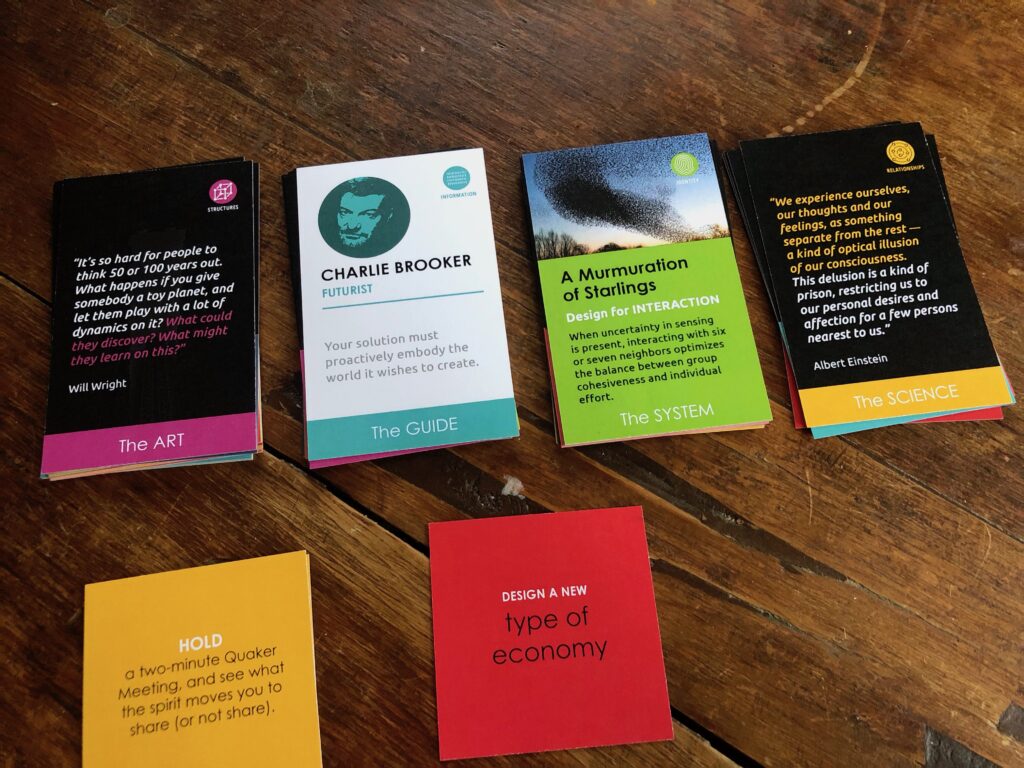
Here they are, in digital form. Try them out, see what they spark, and share what you learn with the rest of us.
- New Relationships
Most importantly, we need one another – both those who are already a part of our circle, and those we have yet to meet.
In a living system, everything is connected. There are no parts to be exchanged or fixed. Critical connections, not critical mass, are what matters most.
How, then, can we deepen both the quantity and the quality of the connections in our lives?
“Exalted we are,” wrote the recently-departed American biologist E.O. Wilson, “risen to be the mind of the biosphere without a doubt, our spirits uniquely capable of awe and ever more breathtaking leaps of imagination. But we are still part of Earth’s fauna and flora, bound to it by emotion, physiology, and, not least, deep history.”
So let’s be more intentional in this New Year in the ways we weave ourselves together.
Let’s face the problems of the world with our collective strength and wisdom. And let’s make this a year of new rituals, new ideas, and new relationships that can help light the path to building a better world, by design.
“Behind the cotton wool is hidden a pattern,” Virginia Woolf said. “The whole world is a work of art . . . Hamlet or a Beethoven quartet is the truth about this vast mass that we call the world. But there is no Shakespeare, there is no Beethoven; certainly and emphatically there is no God.
“We are the words; we are the music; we are the thing itself.”
Seed Talk TONIGHT: Kim Carter on the future of #learning
I first met Kim Carter a lifetime ago, not long after she opened a public school in New Hampshire that remains, to this day, one of the most innovative and life-affirming I’ve ever witnessed.
In response, I wrote about Kim and her school in my 2009 book, American Schools: The Art of Creating a Democratic Learning Community (you can read that chapter here) — and it’s true, Kim is a master of democratic processes, structures, and spirit. But since then, I’ve learned some of the myriad other deep wells of knowledge that this former librarian possesses — and TONIGHT, at 8pm EST, you’ll get to learn some of those things, too, when Kim joins us for what is sure to be a memorable Seed Talk.
How do we make learning more meaningful, and relevant, and real?
What does an environment of transformational learning actually look like — and require?
And what is the future actually waiting for us to do, today?
Join us tonight, via this link — and bring your questions, and your curiosity.
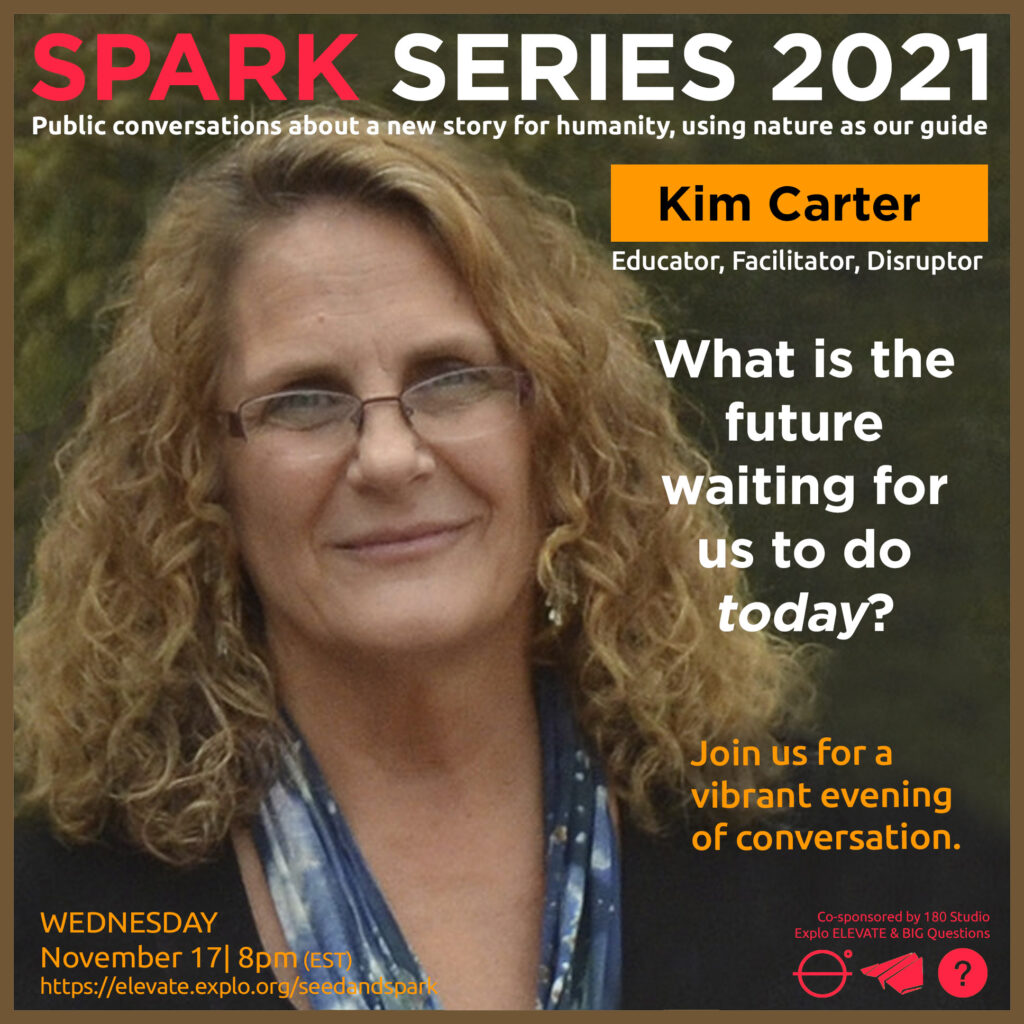
Spark Series: Rulan Tangen TONIGHT
How do you inhabit your body?
In what ways does its use connect you to the world that surrounds you — people, earth, & sky?
How might you inhabit it more intentionally?
Rulan Tangen has been exploring these questions for years, and in our next installment of the Spark Series — public conversations about the future of humanity, using nature as our guide — we all get to join her on that journey.
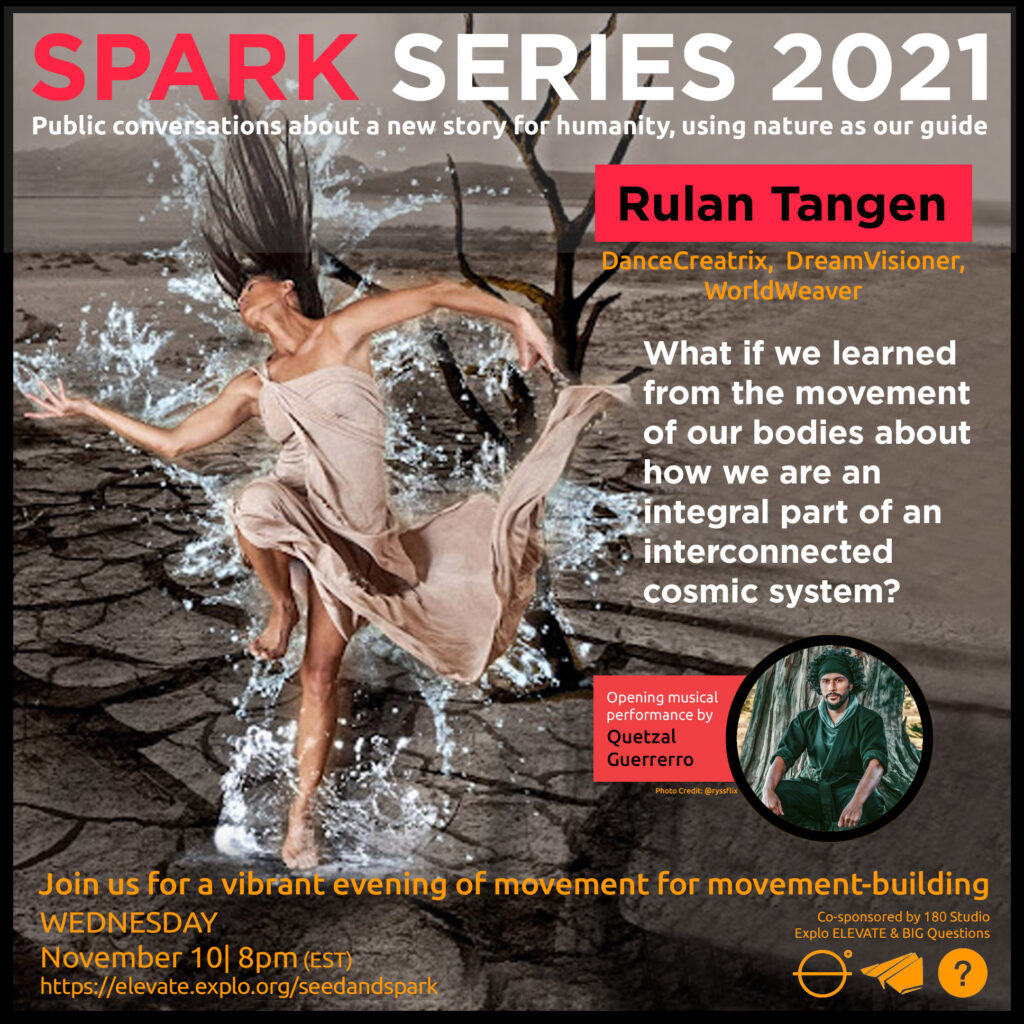
An internationally accomplished dance artist, choreographer, and director with over three decades of experience in multiple movement genres, Rulan is the Founding Artistic Director and Choreographer of DANCING EARTH, a company that creates contemporary dance and related arts through Indigenous and intra-cultural relationships centered in ecological and cultural diversity.
Her work explores movement as an evolving language of global Indigenous and inter-cultural relation building, rooted in inclusion of diverse cosmologies from her own experience and those of the artists with whom she co-creates.
And TONIGHT —Wednesday, November 10th, at 8:00pm EST(via this link) — Rulan will invite us to consider how the movement of our bodies can (re)connect us to the cosmic system of which we are all a part.
This is how we #changethestory . .
Seed + Spark: Kairos Meeting TONIGHT
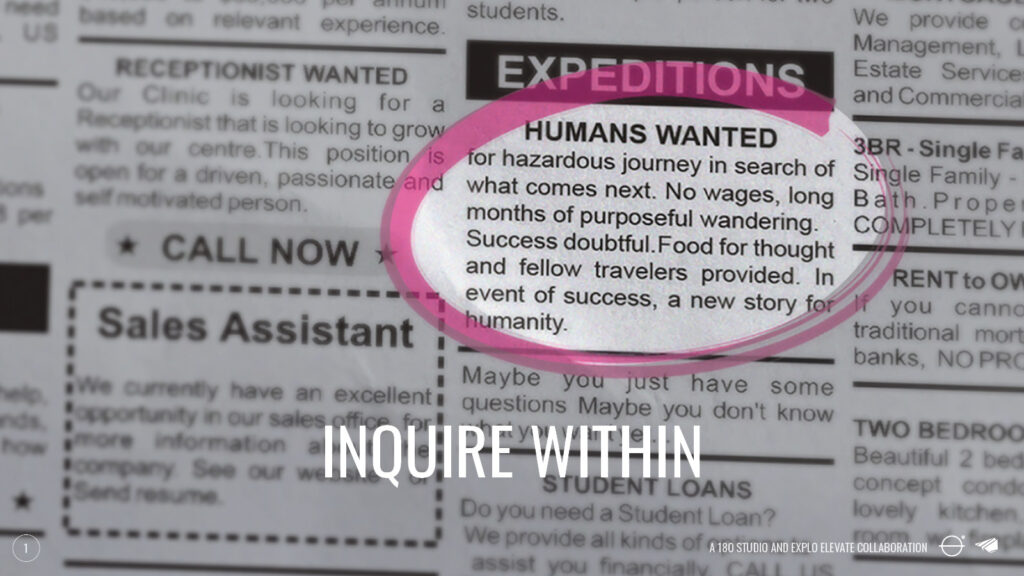
Seed + Spark: The . . . Deck of Cards?
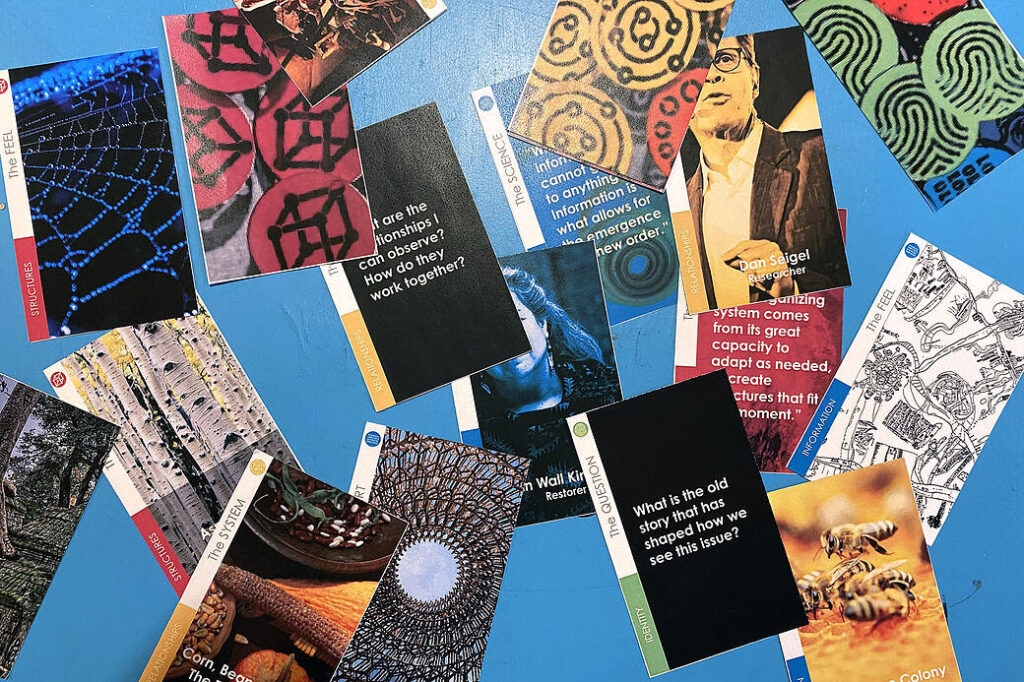
Spark Series TONIGHT: Annie Murphy Paul
Annie Murphy Paul has been writing about the intersection between the biological and social sciences for a while now.
Her TED talk has been seen by millions.
Her first book, Origins, explained how our time in utero helps shape the rest of our ex utero lives — for better or for worse.
And her newest book, The Extended Mind, suggests, provocatively, that the way we’ve thought about how people learn has largely gotten it all wrong “We think best when we think with our bodies, our spaces, and our relationships,” she argues while weaving together research from a variety of fields. “The demands of the modern environment have now met, and exceeded, the limits of the biological brain.
The smart move, therefore, is not to lean even harder on the brain; it’s to think outsidethe brain. But how?
What does it mean to transcend the biological limits of that three-pound lump in our skulls? What would an intentionally-designed school (or workplace) look like if it took all this research to heart? And which aspects of our most familiar ways of thinking about learning, if any, should we keep?
If those questions are of interest to you — and/or if you have questions of your own, join us tonight, October 6th, at 8pm EST, when Annie stops by the Spark Series for a vibrant, free-wheeling conversation about the future of humanity — and how we can use nature as our guide.
See you then, via this link. 🙂
#changethestory
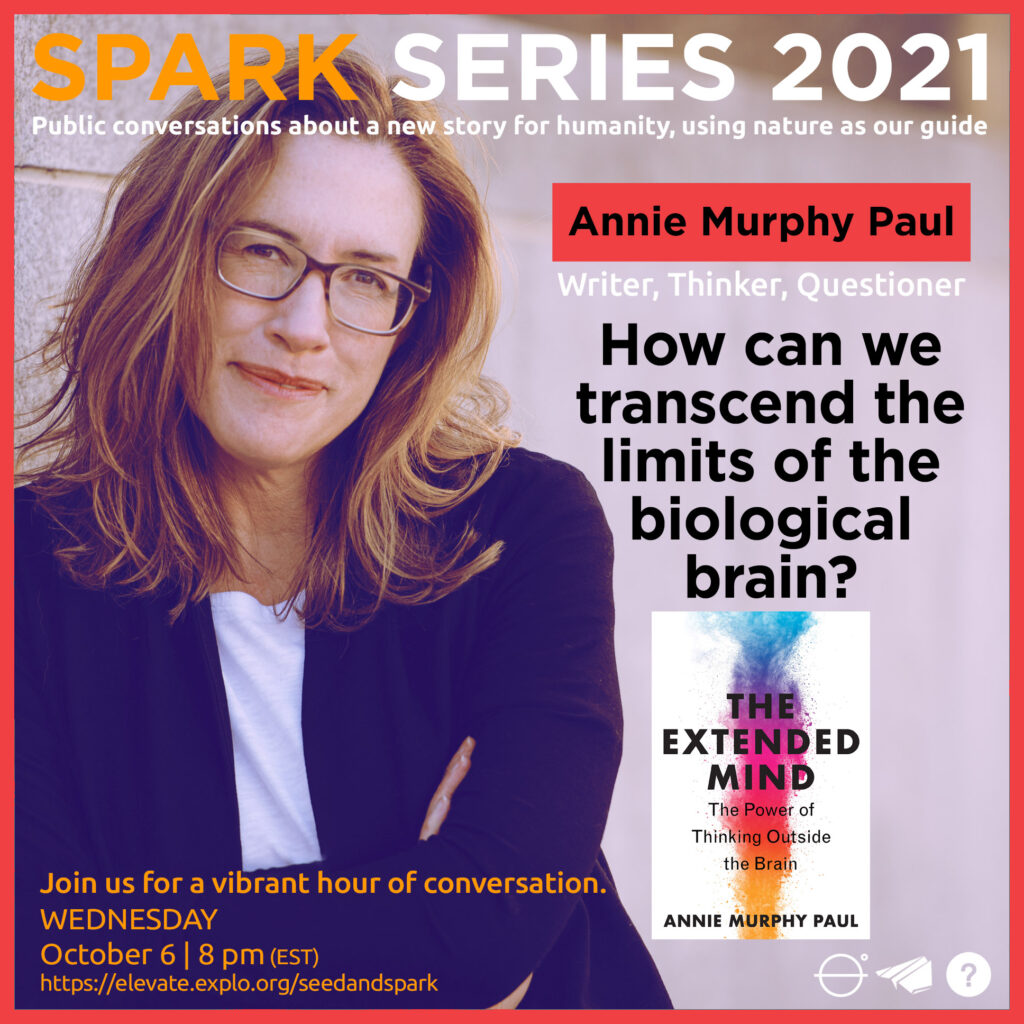
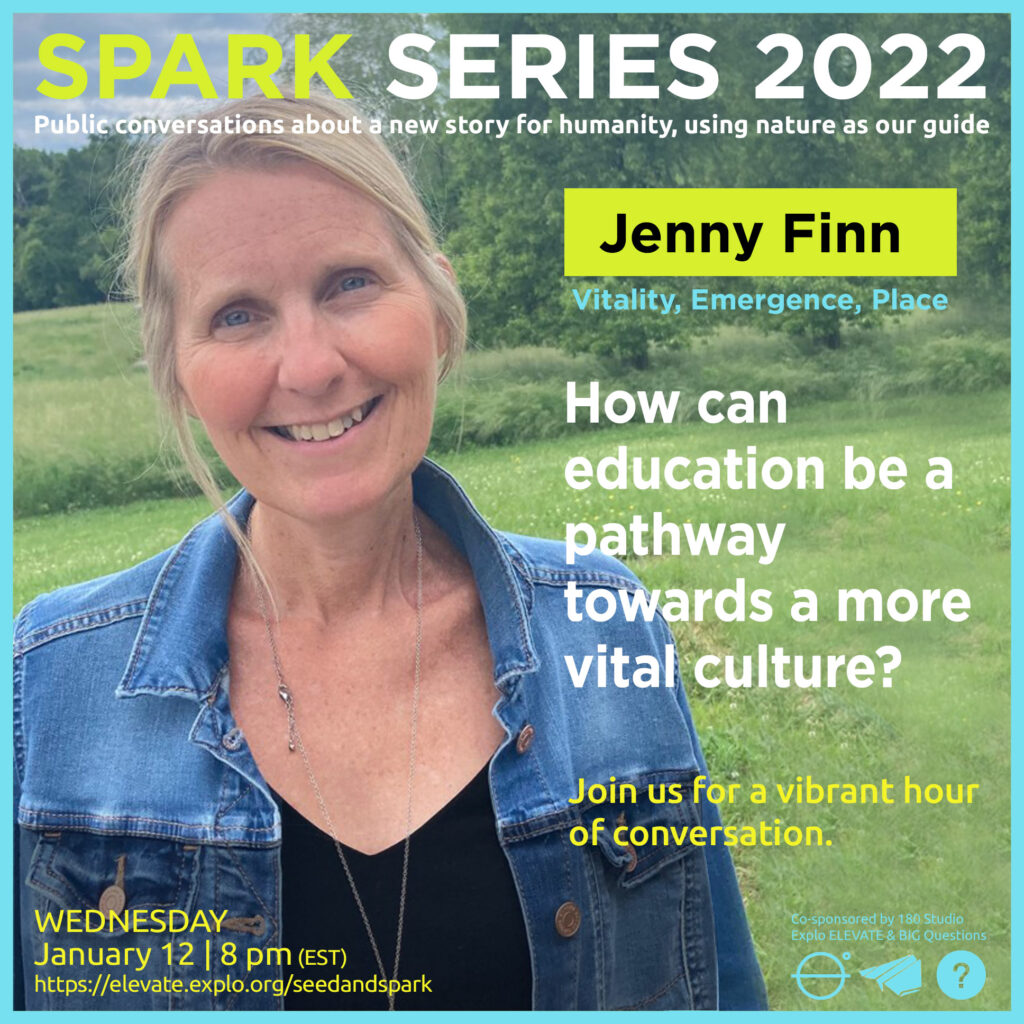
Recent Comments